Aditya Srikanth Veerubhotla
Evaluating Gemini in an arena for learning
May 30, 2025
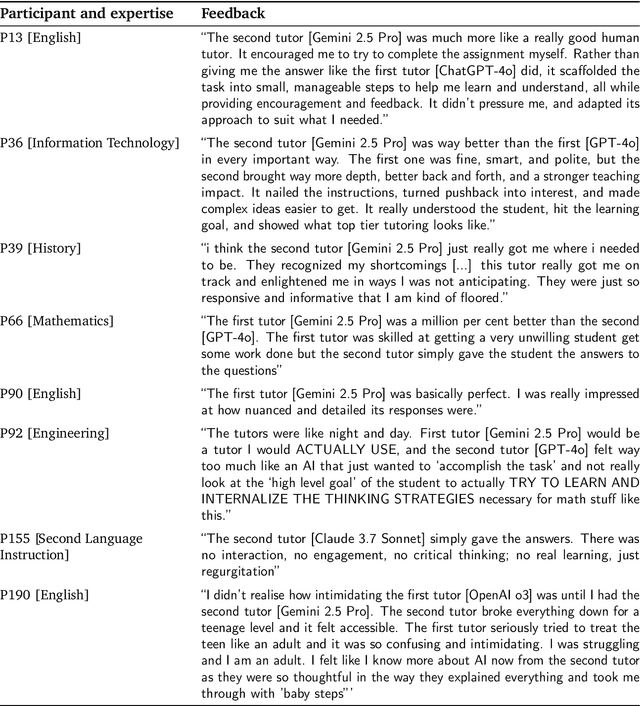

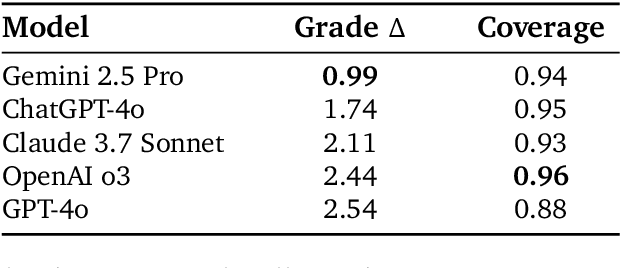
Abstract:Artificial intelligence (AI) is poised to transform education, but the research community lacks a robust, general benchmark to evaluate AI models for learning. To assess state-of-the-art support for educational use cases, we ran an "arena for learning" where educators and pedagogy experts conduct blind, head-to-head, multi-turn comparisons of leading AI models. In particular, $N = 189$ educators drew from their experience to role-play realistic learning use cases, interacting with two models sequentially, after which $N = 206$ experts judged which model better supported the user's learning goals. The arena evaluated a slate of state-of-the-art models: Gemini 2.5 Pro, Claude 3.7 Sonnet, GPT-4o, and OpenAI o3. Excluding ties, experts preferred Gemini 2.5 Pro in 73.2% of these match-ups -- ranking it first overall in the arena. Gemini 2.5 Pro also demonstrated markedly higher performance across key principles of good pedagogy. Altogether, these results position Gemini 2.5 Pro as a leading model for learning.
LearnLM: Improving Gemini for Learning
Dec 21, 2024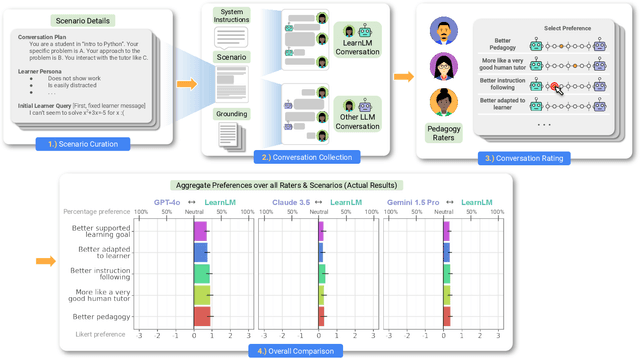
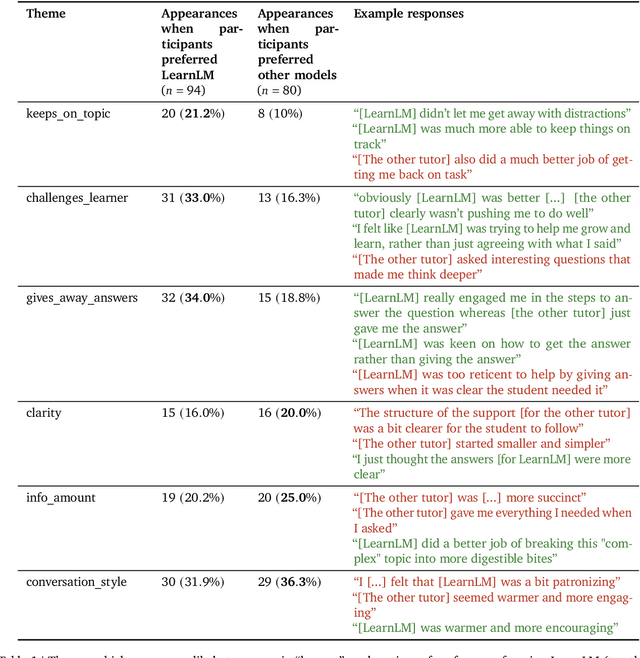
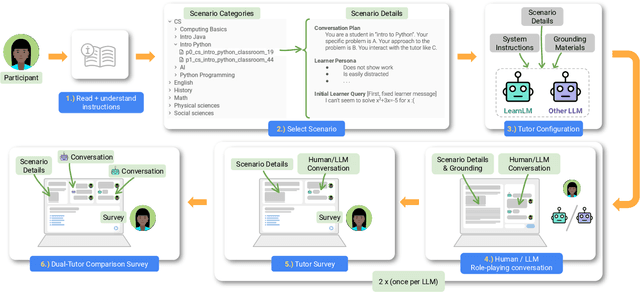
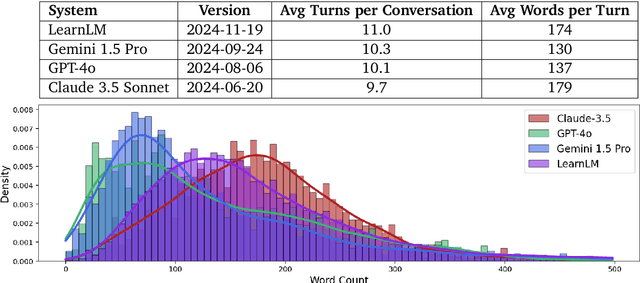
Abstract:Today's generative AI systems are tuned to present information by default rather than engage users in service of learning as a human tutor would. To address the wide range of potential education use cases for these systems, we reframe the challenge of injecting pedagogical behavior as one of \textit{pedagogical instruction following}, where training and evaluation examples include system-level instructions describing the specific pedagogy attributes present or desired in subsequent model turns. This framing avoids committing our models to any particular definition of pedagogy, and instead allows teachers or developers to specify desired model behavior. It also clears a path to improving Gemini models for learning -- by enabling the addition of our pedagogical data to post-training mixtures -- alongside their rapidly expanding set of capabilities. Both represent important changes from our initial tech report. We show how training with pedagogical instruction following produces a LearnLM model (available on Google AI Studio) that is preferred substantially by expert raters across a diverse set of learning scenarios, with average preference strengths of 31\% over GPT-4o, 11\% over Claude 3.5, and 13\% over the Gemini 1.5 Pro model LearnLM was based on.
PEFTDebias : Capturing debiasing information using PEFTs
Dec 01, 2023Abstract:The increasing use of foundation models highlights the urgent need to address and eliminate implicit biases present in them that arise during pretraining. In this paper, we introduce PEFTDebias, a novel approach that employs parameter-efficient fine-tuning (PEFT) to mitigate the biases within foundation models. PEFTDebias consists of two main phases: an upstream phase for acquiring debiasing parameters along a specific bias axis, and a downstream phase where these parameters are incorporated into the model and frozen during the fine-tuning process. By evaluating on four datasets across two bias axes namely gender and race, we find that downstream biases can be effectively reduced with PEFTs. In addition, we show that these parameters possess axis-specific debiasing characteristics, enabling their effective transferability in mitigating biases in various downstream tasks. To ensure reproducibility, we release the code to do our experiments.
Few Shot Rationale Generation using Self-Training with Dual Teachers
Jun 05, 2023Abstract:Self-rationalizing models that also generate a free-text explanation for their predicted labels are an important tool to build trustworthy AI applications. Since generating explanations for annotated labels is a laborious and costly pro cess, recent models rely on large pretrained language models (PLMs) as their backbone and few-shot learning. In this work we explore a self-training approach leveraging both labeled and unlabeled data to further improve few-shot models, under the assumption that neither human written rationales nor annotated task labels are available at scale. We introduce a novel dual-teacher learning framework, which learns two specialized teacher models for task prediction and rationalization using self-training and distills their knowledge into a multi-tasking student model that can jointly generate the task label and rationale. Furthermore, we formulate a new loss function, Masked Label Regularization (MLR) which promotes explanations to be strongly conditioned on predicted labels. Evaluation on three public datasets demonstrate that the proposed methods are effective in modeling task labels and generating faithful rationales.
 Add to Chrome
Add to Chrome Add to Firefox
Add to Firefox Add to Edge
Add to Edge